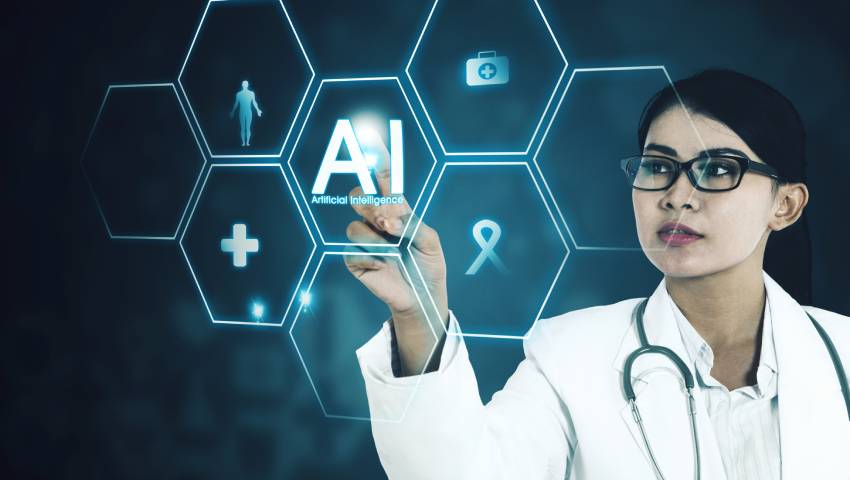
- 10/09/2023
- Dr. Pratik Patil
- 0 Comments
- Blog
Revolutionizing Cancer Diagnosis in India: How AI is Paving the Way for Early Detection
Cancer, a formidable adversary, has long been one of the most pressing health challenges in India. Late-stage diagnosis, limited access to quality healthcare, and the sheer burden of the disease have resulted in significant mortality rates. However, a new ray of hope is emerging in the form of artificial intelligence (AI), which promises to revolutionize cancer diagnosis by detecting the disease up to five years before it fully develops. In this blog, we will delve into the exciting prospects of AI in cancer diagnosis, focusing on India’s unique healthcare landscape.
The Current State of Cancer Diagnosis in India:
Cancer has been on the rise in India, making it the second most common cause of death in the country. A key contributor to this alarming statistic is the late diagnosis of cancer cases. In many instances, patients present themselves to healthcare providers at an advanced stage of the disease, making treatment less effective and more challenging.
The Promise of AI in Healthcare:
Artificial intelligence, or AI, refers to the development of computer systems that can perform tasks that typically require human intelligence, such as visual perception, speech recognition, decision-making, and language translation. In healthcare, AI is increasingly being utilized to streamline processes, enhance diagnostic accuracy, and provide more personalized treatment options.
Early Detection Saves Lives:
One of the fundamental principles in cancer treatment is that early detection significantly improves patient outcomes. The earlier cancer is identified, the more treatment options are available, and the higher the chances of successful treatment and survival. However, traditional cancer screening methods, while effective to some extent, often miss detecting cancer in its nascent stages.
How AI Detects Cancer Early?
AI-driven early cancer detection relies on the analysis of vast amounts of medical data, including medical imaging, patient records, and genetic information. Here’s how AI works to detect cancer at an early stage:
- Medical Imaging: AI algorithms can analyze medical images, such as X-rays, MRIs, and CT scans, with exceptional precision. They can identify subtle abnormalities that might go unnoticed by the human eye.
- Pattern Recognition: AI excels at recognizing patterns in data. In the context of cancer, it can identify specific patterns associated with early-stage tumors or pre-cancerous changes in tissues.
- Genomic Analysis: AI can also analyze genetic data to identify genetic mutations or markers that predispose individuals to cancer. This information can be used for early screening and prevention strategies.
- Risk Assessment: AI can assess an individual’s risk of developing cancer based on factors such as family history, lifestyle, and genetic predisposition. This enables targeted screening and prevention efforts.
Advantages of AI-Powered Cancer Diagnosis:
The integration of AI into cancer diagnosis offers several compelling advantages:
- Higher Accuracy: AI algorithms are capable of achieving an unprecedented level of accuracy in detecting cancer, reducing the risk of false negatives and false positives.
- Early Detection: AI can identify cancer at an earlier stage, potentially allowing for more effective treatment and better outcomes.
- Efficiency: AI can process and analyze vast amounts of data rapidly, allowing healthcare providers to make quicker and more informed decisions.
- Personalization: AI can tailor screening and treatment plans to individual patients, considering their unique genetic makeup and risk factors.
- Cost-Efficiency: While initial investments in AI technology may be substantial, in the long run, AI can reduce healthcare costs by preventing late-stage cancer cases and optimizing treatment plans.
AI Initiatives in India:
India has not been a bystander in the global AI revolution in healthcare. Several initiatives and developments are worth noting:
- Government Support: The Indian government has shown interest in promoting AI in healthcare. Initiatives like the National Health Stack (NHS) aim to create a unified digital healthcare ecosystem that incorporates AI-based solutions.
- Startups and Research Projects: Numerous Indian startups and research institutions are actively working on AI solutions for cancer diagnosis. They are developing algorithms, conducting clinical trials, and collaborating with healthcare providers to implement AI-powered systems.
- Partnerships with Global Players: Indian healthcare institutions are forging partnerships with global AI companies to access cutting-edge technology and expertise.
Overcoming Challenges:
While AI holds immense promise, there are challenges to overcome:
- Data Privacy: Handling sensitive patient data requires robust privacy measures to protect patient confidentiality.
- Data Quality: The accuracy of AI algorithms depends on the quality and diversity of the data they are trained on. Ensuring representative datasets is crucial.
- Regulatory Frameworks: India needs clear regulations and standards for AI in healthcare to ensure patient safety and ethical use.
- Accessibility: Making AI-powered diagnostics accessible to all segments of the population, including rural areas, is essential.
Future Outlook:
The future of AI in cancer diagnosis in India looks promising. With continued research, development, and collaboration between healthcare providers, researchers, and technology companies, AI is poised to significantly impact cancer detection and treatment.
Conclusion:
AI is on the verge of transforming cancer diagnosis in India. By enabling early detection, improving accuracy, and personalizing treatment, AI has the potential to save countless lives and reduce the burden of cancer on patients and healthcare systems alike. As India continues to embrace AI in healthcare, we can look forward to a future where cancer is not only treatable but often preventable. The dawn of a new era in cancer care is upon us, and it holds great promise for the people of India and beyond.
Dr. Pratik Patil is the best Medical Oncologist in Pune with experience of more than 10 years. For more information about cancer and treatment options, or to book an appointment with the best Cancer Specialist in pune call +91 9637439163 or Click on Book Appointment for online booking.
